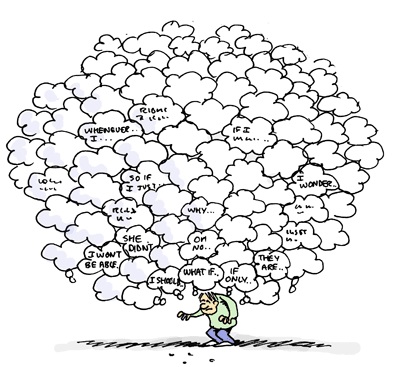negative emotions: toxic or healthy?
“Neurosis is always a substitute for legitimate suffering.”
—Carl Jung
Experiencing negative emotions is an unavoidable dimension of human life: fear, anger, jealousy/envy, anxiety, depression, insecurity, hopelessness, inadequacy, etc. We all grapple with these feelings at one time or another, and on any given day their intensity can be minute, moderate or severe. Either way, healthy adulthood requires that we learn to effectively “work with” our negative emotions.
psychotherapy in manhattan, nyc
 After practicing psychotherapy in NYC for the past 15 years, it’s clear to me that to work effectively with your negative emotions, you must ask yourself two important questions:
After practicing psychotherapy in NYC for the past 15 years, it’s clear to me that to work effectively with your negative emotions, you must ask yourself two important questions:
how do I understand negative emotions?
what shall I do with/about them?
working with negative emotions
understanding negative emotions
If you understand negative emotions as something to avoid and/or something to hide—then you are setting yourself up for a lot of pain and misery. As the saying goes, “What we resist, persists.” However, if you understand negative emotions as opportunities for learning and growth, everything changes. This perspective leads us to:
(1) turn toward (rather than away from) our negative emotions with an open mind and heart and an attitude of compassion and curiosity; and
(2) find people with whom we can regularly share and process our negative emotions.
responding to negative emotions
Negative emotions are perpetuated and exacerbated in our lives when we regularly ignore, battle, belittle or indulge them. Counter-intuitively, the task is to BEFRIEND them and USE them to deepen and enhance our relationships with others and ourselves. When we are feeling lots of negative emotions, we need to treat ourselves as we would treat a good friend. Be gentle, compassionate, curious. Seek to find out what’s going on at a deeper level, what needs are not being met, what disappointments have occurred. Figure out what self-care needs to look like during times of emotional turbulence.
Treat yourself well, especially in how you talk to yourself. Don’t just try to avoid or numb the feelings—take them seriously. Remind yourself often that while suffering, pain and discomfort in life are unavoidable, you are deeply committed to USING negative emotions to further your growth and integration, rather than to further dysfunction and fragmentation.
re-thinking major depression, generalized anxiety and destructive anger
We live in a culture that is highly shaming of many of our natural and human (though unpleasant) feelings, like sadness, loneliness, embarrassment, fear and insecurity. When people feel these feelings, they conclude that “there is something wrong with me,” which begins a very destructive cycle of:
- –Obsessing, in self-critical ways, about not being _________ enough (i.e. thin, tall, wealthy, successful, healthy, popular, etc.)
- –Criticizing oneself for not being farther along in life
- –Ruminating about failures, with an attitude of hostility toward oneself
- –Churning in anger, resentment, jealousy, envy & frustrated desire
- –Drifting regularly into fight/flight mode in relationships, thus living with chronic interpersonal conflict
When we fail to understand and effectively process the normal feelings of sadness, loneliness and insecurity, we are far more likely to develop emotional disorders like Major Depression, Generalized Anxiety and the type of Anger that gets out of control. And of course people all around you will endlessly implore you to “get on medication.” I am in no way against psychiatric medication, but if you’re not also working rigorously to become more skilled at handling the negative emotions of life, you’re shortchanging yourself in a very big way.
So are negative emotions toxic or healthy?
It depends on how you understand them and what you DO with them.
Chris,
Thank you!
Wonderful words read while in New Zealand. For the first week, I struggled with homesickness and anxiety, and almost cut my trip short. But I decided to sit with it, be kind to myself and hear the undertones which were very old memories of separation and fear. I was able to move through the pain and on the other side have been having wonderful adventures. It was a tough combo of holding the feelings with compassion, but not giving in the the urge to literally run away. I am so happy that I did. Many stories to share upon my return.
Jung is wrong, IMHO. Neurosis is NOT a substitute for legitimate suffering. Why would you think think brain-trauma is the same thing as feeling sad?